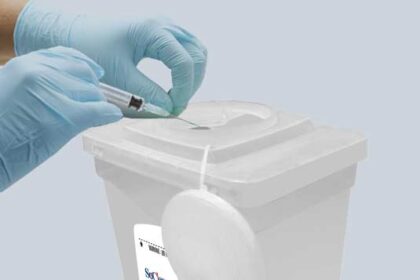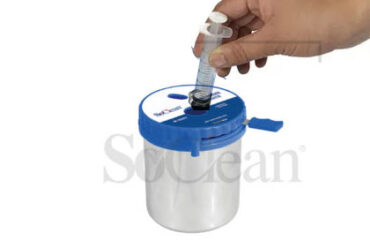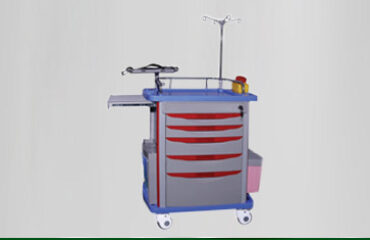
Introduction: In any healthcare facility, ensuring the safety and well-being of patients, healthcare workers, and the surrounding community is of paramount importance. A critical aspect of this responsibility lies in the proper disposal of medical waste, especially sharps. Sharps include any object with a sharp edge or point capable of puncturing or cutting the skin, such as needles, syringes, and scalpels. The significance of using sharp containers in healthcare facilities for the disposal of sharp waste cannot be overstated. In this blog, we will explore the reasons why these containers are indispensable in safeguarding both human health and the environment.
- Protecting Healthcare Workers and Patients: Healthcare workers are constantly exposed to sharp instruments while providing medical care, and the risk of accidental needlestick injuries is a constant concern. The careless disposal of sharps can lead to such injuries, potentially transmitting dangerous bloodborne infections like HIV, hepatitis B, and hepatitis C. By using sharp containers, these risks are significantly reduced, creating a safer working environment for medical professionals and ensuring patients’ safety.
- Preventing Cross-Contamination: Medical facilities often deal with a wide range of patients with various medical conditions. Proper disposal of sharp waste in designated containers prevents cross-contamination between patients, reducing the spread of infections and diseases. Using sharp containers ensures that contaminated sharps are segregated from other waste streams, minimizing the chances of accidental exposure.
- Complying with Regulations and Standards: Healthcare facilities are subject to strict regulations regarding medical waste management, including sharp waste disposal. Failing to comply with these regulations can lead to severe penalties and legal consequences. Utilizing approved sharp containers helps healthcare organizations adhere to the guidelines set by regulatory authorities, ensuring the proper handling and disposal of sharps.
- Environmental Protection: Disposing of sharp waste improperly can have detrimental effects on the environment. Sharps that end up in regular waste bins or landfills pose a risk to waste handlers, the public, and the ecosystem. By using specially designed sharp containers, the chances of environmental contamination are minimized. These containers are made from puncture-resistant materials, preventing sharps from piercing through and causing harm.
- Facilitating Safe Disposal and Recycling: Once the sharp containers are filled, they are securely sealed, labeled, and disposed of following appropriate protocols. Many medical waste disposal companies offer services for safe collection, transportation, treatment, and recycling of sharp waste. This ensures that the waste is managed responsibly, minimizing its impact on the environment.
- Promoting a Culture of Safety: Implementing the use of sharp containers sends a strong message within healthcare facilities about the importance of safety. It encourages a culture where proper waste management is prioritized, leading to greater awareness and diligence among healthcare workers in handling medical waste responsibly.
Conclusion: The proper disposal of sharp waste in healthcare facilities is a critical element of ensuring the safety and well-being of everyone involved. By utilizing sharp containers, healthcare organizations can protect their staff, patients, and the environment from the potential hazards associated with sharp waste. These containers facilitate safe disposal and contribute to a culture of safety, ultimately promoting the overall sustainability of healthcare operations. Prioritizing the use of sharp containers is a small yet impactful step towards a safer and healthier healthcare ecosystem.
 Get Quote
Get Quote

